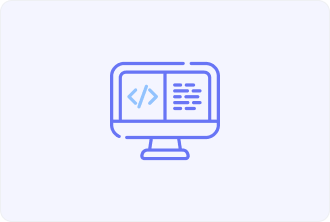General Purpose Language Definition

What does the coined “General Purpose Language” mean though, although it has covered a lot these days in the software development industry? A general application language may be described as a programming language that is versatile to apply across a number of different application domains.
A general-purpose language differs from domain-specific languages, which are designed and created to perform on very specified types of tasks in industries—GPLs are one of the bases of the programming world.
General Purpose Language in Software Development

A general-purpose language is important in software development due to the flexibility and wide applicability of the language. Examples of GPLs include Python, Java, C++, and JavaScript. All these languages range from very simple scripting to fully fledged complex systems: web apps, mobile apps, and desktop software, but even down to embedded systems.
However, it is in the ability to adapt to different tasks that the real power of a general-purpose language comes into its own. For example, Python is extremely well-known for its simplicity and readability, which has no doubt made it one of the favorite languages among beginners and senior developers alike.
It’s used in web development, data science, and automation—just a few examples of the many kinds of tasks it is used for. One prefers Java because of the richness of the language and its portability, thus finding its place in enterprise-level applications and Android development.
Perhaps most obviously, some of the largest advantages to using a GPL often involve large ecosystems of libraries, frameworks, and tools extending its reach considerably. Such an ecosystem greatly helps to aid developers in ascertaining a slew of different functionalities quickly and with minimal hassle without having to start from a blank slate. Wide community support for the language also helps guarantee there are sufficient resources, tutorials, and forums to help in troubleshooting and attaining mastery.
GPL for Software Development
In most of the cases, Developers choose a Language for Software Development as general purpose languages which have broad coverage of use cases and flexibility. One of the major deciding factors to zero in on a GPL is the requirement of developing scalable, maintainable, efficient software that can adapt with changing requirements.
General-purpose languages can be integrated with other technologies or platforms. For example, JavaScript is a language which enables frontend and backend development by rendering in environments like Node.js. On the other hand, C++ is usually applied to system programming, game development, or applications that require top performance.
Besides being general-purpose in use, most languages are designed for either flexibility or performance. For example, C++ enables developers to manage memory directly and is unbeaten in high-performance applications. On the other side, languages like Python focus on developer productivity and readability, which allows for speedy development cycles.
This is also a factor that makes GPLs very attractive: portability. Java’s “write once, run anywhere” philosophy means that programs written in Java could execute on any device supporting the JVM, independent of hardware or operating system.
Conclusion
There you have it—why a general-purpose language is one of the most critical weapons in any software developer’s armory: flexibility, wide applicability, and a robust ecosystem that makes it indispensable for many different programming tasks. Be it some simple scripting tool or a complex large-scale application, a GPL will afford the latitude and support necessary to bring such a project into being.
Software development normally involves the choice of a general language in which one desires a language that is capable of performing a wide variety of things, working well with other technologies, and bending to meet any changing project requirements as much and as often as possible. In view of this, the role played by general-purpose languages in software development will remain critical in enabling the creation of innovative, efficient, and scalable software solutions, even as technology continues to advance.
In a world driven by software, understanding, and harnessing the capability of general-purpose languages is essential for every developer who wants to be at par in this industry. Whether it is a new coder or an experience engineer, mastering a general-purpose language can open doors to various options in the ever-growing field of software development.